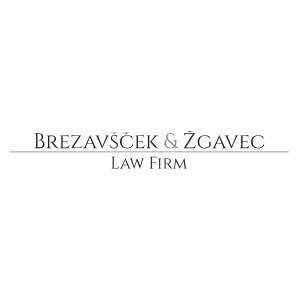Best Tax Increment Financing Lawyers in Ljubljana
Share your needs with us, get contacted by law firms.
Free. Takes 2 min.
List of the best lawyers in Ljubljana, Slovenia
About Tax Increment Financing Law in Ljubljana, Slovenia
Tax Increment Financing (TIF) is a public financing method that is used as a subsidy for redevelopment, infrastructure, and other community-improvement projects. In Ljubljana, Slovenia, TIF is employed to stimulate economic growth and improve public infrastructure in designated development areas. Through this method, public projects are funded using future tax revenue increases that are anticipated from the development projects. This helps in transforming underdeveloped areas without requiring a substantial immediate expense from local government finances.
Why You May Need a Lawyer
Seeking legal assistance concerning Tax Increment Financing can be crucial for various reasons:
- Complexity of Regulations: Understanding the legal intricacies and compliance requirements within the context of Slovenian law can be challenging.
- Project Implementation: Developers and municipalities may need legal guidance to ensure that project implementation adheres to local TIF regulations.
- Contractual Agreements: Legal experts can assist in drafting and reviewing contracts that govern the terms and conditions of financing arrangements.
- Dispute Resolution: In case of disputes between stakeholders, legal professionals can help mediate or represent parties in legal proceedings.
Local Laws Overview
In Ljubljana, key aspects of the local laws concerning Tax Increment Financing include:
- Eligibility Criteria: Specific areas are designated as TIF districts based on their potential for economic development and need for revitalization.
- Approval Process: TIF projects require approval from local government bodies, often necessitating public hearings and feasibility studies.
- Financial Terms: The law outlines how future tax increments will be utilized to finance development projects and the limitations on public expenditure.
- Accountability Measures: Regular audits and performance reports are mandated to ensure transparency and accountability in the use of TIF funds.
Frequently Asked Questions
What is the main purpose of TIF in Ljubljana?
The main purpose is to promote urban renewal and economic development in underutilized areas, improving public infrastructure and attracting private investment.
Who can initiate a TIF project?
Both public entities and private developers can initiate TIF projects in collaboration with the municipal authority responsible for its implementation.
How are TIF areas selected?
Areas are selected based on development potential and the need for economic revitalization. This selection is often supported by economic analyses and public consultation.
What are the risks of using TIF?
The primary risks include insufficient tax revenue to cover the projected costs and potential opposition from local taxpayers who may not directly benefit from such projects.
How does TIF affect property taxes?
Increases in property value within a TIF district may lead to higher property taxes, but these increments are earmarked for funding the development projects.
Can TIF funds be used for any project?
No, TIF funds can typically only be used for projects that improve the designated area, such as infrastructure upgrades, public facilities, and commercial development.
How long does a typical TIF district last?
A TIF district usually exists for a set period, often between 20 and 30 years, to allow time for development and debt repayment using tax increments.
Are residents involved in TIF planning?
Yes, public input is often solicited during the planning stages, and community meetings or hearings may be held to gather feedback.
What should I do if I have a complaint about a TIF project?
Concerns can be addressed to municipal authorities overseeing the TIF project, and they can also be brought up during public meetings or filed legally if unresolved.
How is the success of a TIF project measured?
Success is measured through economic metrics such as job creation, increased property values, and improved public infrastructure, often evaluated in regular reports.
Additional Resources
The following resources may be helpful for those seeking more information or legal advice on TIF in Ljubljana:
- Ministry of Finance of the Republic of Slovenia
- Municipality of Ljubljana's Urban Planning Department
- Local chambers of commerce and industry organizations
- Public Development Banks and Financial Institutions with experience in TIF
Next Steps
If you require legal assistance in navigating Tax Increment Financing in Ljubljana, consider the following steps:
- Research and contact legal firms specializing in urban development or municipal law.
- Consult with local governmental bodies to understand specific regulations related to your project.
- Engage with professional organizations or consultants with expertise in TIF projects.
- Prepare all relevant documents and information about your project to present to legal advisors.
Lawzana helps you find the best lawyers and law firms in Ljubljana through a curated and pre-screened list of qualified legal professionals. Our platform offers rankings and detailed profiles of attorneys and law firms, allowing you to compare based on practice areas, including Tax Increment Financing, experience, and client feedback.
Each profile includes a description of the firm's areas of practice, client reviews, team members and partners, year of establishment, spoken languages, office locations, contact information, social media presence, and any published articles or resources. Most firms on our platform speak English and are experienced in both local and international legal matters.
Get a quote from top-rated law firms in Ljubljana, Slovenia — quickly, securely, and without unnecessary hassle.
Disclaimer:
The information provided on this page is for general informational purposes only and does not constitute legal advice. While we strive to ensure the accuracy and relevance of the content, legal information may change over time, and interpretations of the law can vary. You should always consult with a qualified legal professional for advice specific to your situation.
We disclaim all liability for actions taken or not taken based on the content of this page. If you believe any information is incorrect or outdated, please contact us, and we will review and update it where appropriate.

















